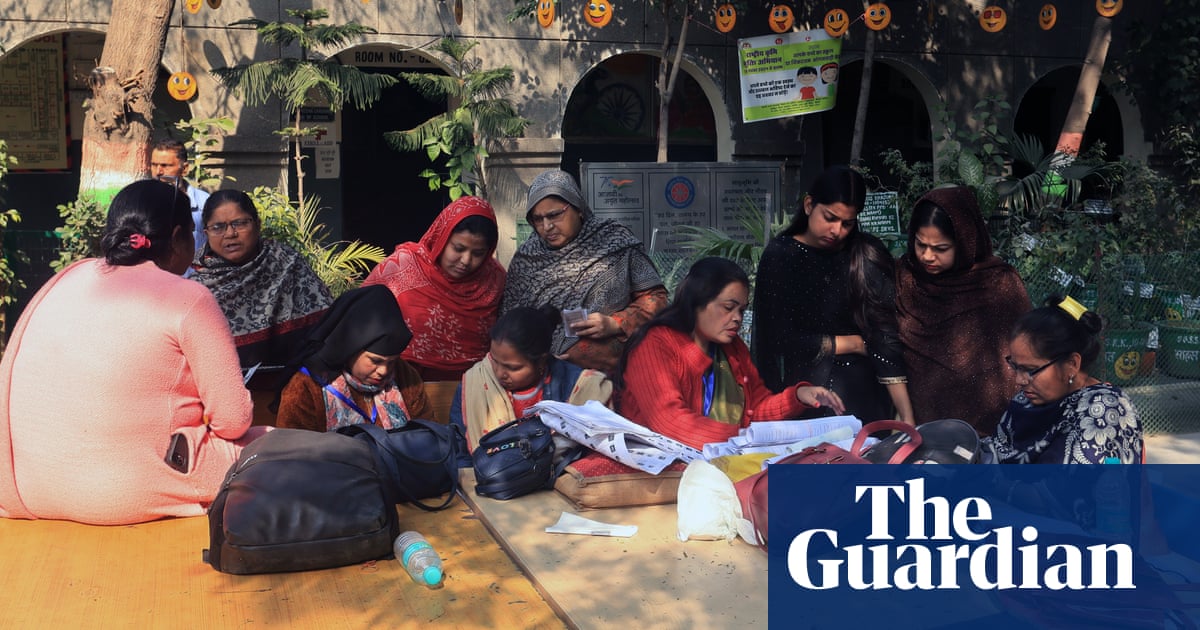 |
|
The Indian political landscape is bracing for a potential seismic shift as exit polls strongly suggest a victory for Narendra Modi's Bharatiya Janata Party (BJP) in the Delhi state elections. This projected win would mark a remarkable turnaround, ending a 27-year absence of the BJP from power in the national capital and simultaneously ending the nearly decade-long rule of Arvind Kejriwal's Aam Aadmi Party (AAP). The exit polls, while not universally accepted, paint a compelling picture of a significant BJP surge, forecasting around 43 seats for the party compared to a considerably lower 26 for the AAP. The Congress party, once a dominant force in Delhi, is projected to win a mere single seat. This outcome would represent a major blow to the AAP, a party known for its anti-establishment stance and focus on populist welfare policies.
The AAP, under Kejriwal's leadership since its inception in 2012, rose to prominence on the back of an anti-corruption platform and a promise of improved public services. Their 2015 victory was seen as a significant upset, marking a shift in the Delhi political scene. Their subsequent win in 2020, securing 62 out of 70 seats, further solidified their position. However, the recent years have seen the AAP grapple with controversies. Allegations of a liquor scam, leading to arrests of Kejriwal and his ministers, along with criticism over the construction of a lavish chief minister's residence, have undeniably impacted public perception. This, coupled with the BJP's strong campaign targeting these issues, likely contributed to the projected shift in voter sentiment.
The BJP's anticipated success carries significant implications beyond Delhi. Following a relatively less spectacular performance in the 2024 general elections where they fell short of an outright majority, this win would provide a considerable boost to the party’s morale and political capital. Recent victories in Maharashtra and Haryana further suggest a potential upswing in the BJP's fortunes nationwide. Modi himself actively campaigned in Delhi, demonstrating the party’s commitment to reclaiming the capital. The contest was fierce, with all three major parties employing strategies centered on promises of freebies – free water, electricity, cash incentives – reflecting a trend prevalent in Indian state-level elections. The AAP's governance model, built on popular public welfare schemes, was a significant factor in their past victories, but recent controversies may have eroded this support base.
The contrast between the AAP's governance model, focused on improving basic services and projecting a clean image, and the BJP's campaign that highlighted the accusations of corruption against the AAP, forms a crucial backdrop to this election. While the AAP denies the charges, alleging political vendetta, the allegations, coupled with the controversy surrounding the chief minister's residence, have undoubtedly affected public opinion. The official results are expected on Saturday, and regardless of the final outcome, these elections highlight the dynamic and fluctuating nature of Indian politics, the significant role of high-profile personalities like Modi and Kejriwal, and the potent impact of both successful governance models and damaging accusations in shaping electoral results. The coming days will provide a clearer picture of the real implications of these exit polls, but their implications for both the BJP and the AAP are far-reaching and will likely shape the political landscape for years to come.
Beyond the immediate electoral implications, the outcome in Delhi will undoubtedly influence political strategies across India. A BJP victory will further embolden the party's national ambitions, while an unexpected AAP upset could reinvigorate the anti-establishment sentiment. The election also underscores the evolving nature of political campaigning in India, where populism and the promise of direct benefits to voters play a crucial role. The use of freebies as a campaign strategy, adopted by all major parties, reflects a growing trend and raises questions about the long-term sustainability of such approaches. Ultimately, the Delhi elections serve as a microcosm of larger national trends, offering valuable insights into the evolving political dynamics and voter preferences in the country. The analysis of these results will be crucial for political strategists and analysts across the political spectrum as they look ahead to future elections and challenges.
Source: Modi’s BJP poised to win Delhi state elections for first time in 27 years, exit polls show
